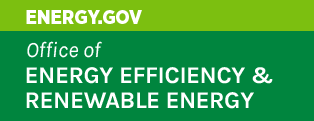29 Years of Transportation Progress Infographic Sources
The national network of Clean Cities coalitions is helping to ensure our nation's energy and economic security. Coalitions create significant and lasting change by building partnerships from coast to coast to advance affordable, domestic transportation fuels and technologies. Their efforts have yielded impressive results since the first Clean Cities coalition was designated in 1993.
The following footnotes and sources correspond to the "29 Years of Transportation Progress" infographic.
Footnotes
1 Energy use impact is a metric that measures combined progress in reduced fuel use and increased fuel diversity. Reduced fuel use makes our transportation system more energy efficient, and increased diversity through domestic alternative fuels provides consumers and businesses more energy choices.
2 Based on data in the Clean Cities Coalitions 2020 Activity Report
3 Since 1998, the U.S. Department of Energy has distributed more than $570 million for transportation projects. Coalition-supported projects have historically leveraged almost $885 million in additional matching funds and in-kind contributions.
4 Based on average commute speeds reported by the U.S. Department of Transportation
5 Fuel Ethanol Overview and Monthly Biodiesel Production Report
6 Electricity Explained: Electricity in the United States
7 iREV - Initiative for Resiliency in Energy Through Vehicles
8 Natural Gas Production and 2016 Propane Market Outlook
